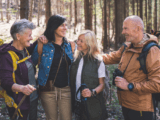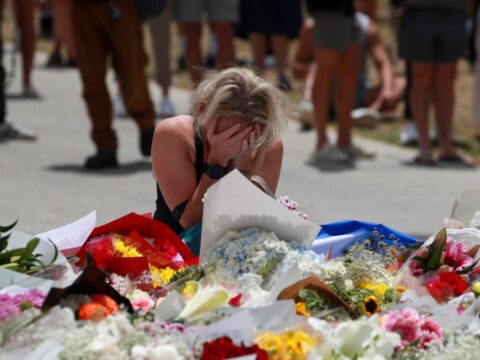Myrna McCallum is a Cree-Métis lawyer, public speaker and host of The Trauma-Informed Lawyer Podcast, an educational resource for lawyers. She founded the Justice as Trauma conference, which returned for a second year this March in Vancouver.
The conference connects various groups, particularly those working in justice, law and advocacy, who are passionate about trauma-informed justice. It offers networking opportunities, workshops and small group discussions.
You may unsubscribe from any of our newsletters at any time.
McCallum defines trauma-informed justice as a system rooted in healing, cultural responsiveness, equity and community relationships. It focuses on restoring dignity and supporting the mental and emotional well-being of those who have been harmed while also protecting the psychological well-being of those responsible for delivering justice.
McCallum has taught several courses on trauma-informed principles and is currently writing her memoir.
MOTIVATION
I grew up in a really violent household and lived in poverty my entire childhood. I was in and out of care, and ultimately, my mother left my brother and me in a Indian residential school. After a year, I ran away to become my own independent caretaker.
When I was in high school, for the first time in my life, a teacher told me I was smart. I asked her if I was smart enough to be a lawyer. I didn’t see any lawyers who looked like me. She said with certainty, “There may not be many, but you can do it.” And that began my path to the University of British Columbia law school.
When I was in law school, nobody talked about trauma or vulnerability. It was a facts-only experience. We only focused on evidence and how to gather it from people. It wasn’t until about six months into my law career that I decided to leave civil litigation and become a criminal lawyer.
More on Broadview:
- This Vancouver bookstore is more than a business — it’s a platform for justice
- Tanya Talaga’s new book is her most personal one yet
- How NDAs silence victims and let perpetrators off the hook
What I didn’t know then — because I didn’t have the language for it — was that every day I walked into a courtroom, I was triggered. I was retraumatized. Much of what I was dealing with was directly connected to my own childhood experience as a young Indigenous woman. I had to go to therapy to let go of my unhealthy coping mechanisms.
Eventually, I decided to leave criminal law and began adjudicating Indian residential school claims. I did not start speaking about trauma-informed lawyering until 2018. I launched the podcast in 2020, partly because lawyers were becoming interested in trauma-informed practice and partly because of the pandemic. Podcasting was also one way to maintain connection during that isolating time.
COMPASSION
A six-year-old Indigenous boy changed my life. It was at the end of my prosecution career when a file landed on my desk involving a boy who had been assaulted by a member of his community and had attempted suicide. I felt strongly about this case as Indigenous communities have been facing a suicide epidemic for a long time, which highlights how these communities remain deeply connected to the residential school system.
I called his parents and said, “I’d really like to meet you and talk about how you’re all doing.” After the case was over, his parents still regularly called me to share updates on how well he was doing and to thank me for treating them like human beings with real fears.
None of this came from a playbook, but that moment immediately shifted my perspective — from being a very transactional, facts-only lawyer to recognizing that evidence doesn’t just come to us in a neat package. It comes with fear, anxiety, grief and loss.
In my opinion, being an effective lawyer means developing the skills to meet all of that — while delicately, sensitively and effectively gathering the evidence needed to do your job.
TRANSFORMATION
My podcast guests include judges, lawyers, educators, therapists, police officers, frontline workers and trauma experts. I love listening to their transformations — the aha moments, the big awakenings and the wisdom of, “This is how I’m trying to do better and be better.”
When we talk about being trauma-informed, the fundamental requirement is psychological safety. We also have to consider what it means to be culturally responsive because we can’t treat everyone the same. Cultural responsiveness is an essential part of the trauma-informed framework. If we are not culturally responsive or considering racial justice, we are not truly trauma-informed.
People come from different cultures, and some need their spirituality and language reflected in our processes. This is especially true for Indigenous people.
***
This interview has been edited for length and clarity.
Negin Nia is a journalist in Vancouver.














